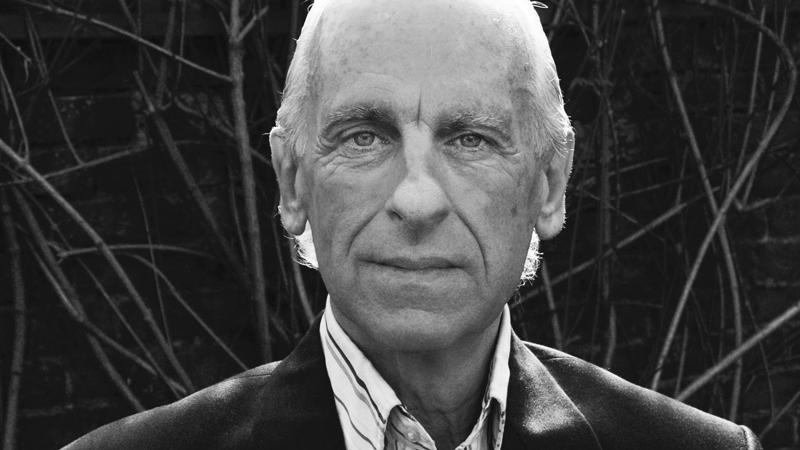Not only has Roger Woodward established himself as one of the most revered and adventurous pianists of our time but he has also been classified as an Australian Living Legend. Passing through his birthplace Sydney recently, we caught up with him on his only day off for a deep and meaningful about the return to melody, his forthcoming Riverside Theatres recital, and got lucky with more than we bargained for, including a long conversation at the table, over French crepes and good coffee.
"[2018] is the centenary of Debussy's death, and his piano teacher studied with Chopin, and they've got this close kind of style, which is a very expressive lyric style of composition, which is in contrast to the big symphonic style of the Viennese School of Beethoven and Mozart" Roger Woodward responded when I asked him about his selected Sydney program. And it didn't take much for this most charming gentleman to expand the flow of conversation into rivulets then streams of music history.
Chopin's father was French, he inherited the French style "so it's a French program." And so I was enlightened to the intelligent choice of venues by Roger Woodward; we were not sitting in a French café by coincidence it seemed. When I explained that as composers Debussy and Chopin always resonated most closely in my heart and wondered why, my enlightenment continued "beautiful melody" Woodward explained. "We've been through a long time period of getting away from melody because it was suspiciously too close to our soul. But we're coming back to that and the reappraisal of melody is a lovely thing."
And when I spoke of what I found to be an underlying sadness in Chopin, Woodward pinpointed what I have felt. He called it nostalgia.
"Nostalgia. Yearning. Love lost. ...typical 19th century themes" and in the soft understanding of his voice, his response nearly in itself embodied the Romanticism of the period. "The pursuit of coming out of darkness into light, and Chopin is very much a part of that."
"The Poles tried to change his name to Chopinovsky but he wouldn't have it. The father came from France. He was a refugee."
As the waiter took our orders, I pondered our choices; sitting with us his long time friend Carmel and I ordered sweet crepes, mine traditional with just lemon and sugar, Roger ordered savoury.
"I'm going with one of the masterpieces of Chopin's middle period. There were four ballades; they're storytelling pieces. And there's the fourth one. And probably for me it's a work I continually rediscover. It's a work I've played all my life. And I love it"
"The program opens with three pieces by Debussy called Estampes written in 1903 after his visit to the London National Gallery and he saw his first Turner paintings with these big seascapes that just blew his mind completely." And he continued there was the impact of his best friend Monet, the impact of Turner and the impact of the World Fair of 1889 in Paris and the Eiffel Tower was the gateway. The young Debussy heard his first music and dances from Indonesia, using the five note pentatonic scale. And then Woodward provided a very lovely musical theory explanation about how music was changing, and moving away from western music harmonic major and minor scale patterns to an experimental stage, with Debussy the father of 20th century modernism.
I'm watching as well as listening. As the very affable Roger Woodward talks he swells with passion. Although he's seated opposite me he almost exudes that undefinable 'stage presence' as we continued into this most fascinating conversation of how Debussy was trying to capture the light and shade, matching the paintings that he was so attracted to.
"Well the first of these three pieces is Pagodes, the temples from the far east."
"And it's got these big Chinese melodies. It's a fabulous piece." "It's a great piece and it's got this timeless feeling about it. It's got this kind of exotic colour to it as well."
"Then the second piece is called La soiree dans grenade, which is an evening in Grenada. You hear the heat of that culture that comes to life after dark. So there's the romance of the sounds occuring in darkness and the Flamenco dancers, and the castanets, and the cicadas, and everything that would be associated with heat. And you have this outpouring of melodies of everything that would be associated with Spain." And when I questioned evoking the sounds of cicadas on a piano he chuckled "yeah you can do everything on a piano."
"And then the last part is Jardins sous la pluie, the gardens in the rain. It's a Parisian garden in the middle of summer and the children are singing children songs and there's a deluge of rain and they run indoors. The piece is wonderful at the end, the sun comes out after the rain, and you get this light on all these thousands of different greens in the garden, and the rainbows. The piece ends with rainbows. It's just fabulous."
"The Estampes like prints, a print of China, Spain and France, there's 13 minutes for the three. So quite a short work, but it's a very beautiful work."
"And then another piece of Debussy just four minutes long called L’isle Joyeuse (the joyous island) and it was based on a painting by Watteau from 1717 where people are coming out of dark buildings onto a raft going to an island of Arcadian delights and they are all excited about this. And of course it is the coming out of The Age Of Reasoning into The Enlightenment. And it's a gigantic change of epochs, and thinking and feeling. And there's this feeling of excitement. And it's like an inner Bacchanalia. And this piece has got a kind of riotous feel about it. And the piece keeps pressing on, and on, and on, and on. And you think, how's this going to end? And it ends with a big explosion of happiness."
"It's probably the best piano piece of the 20th century" I thought that was it, the big statement, and after some hesitation he added "in many ways".
"Then there's that fourth great ballade of Chopin's I was telling you about, and then interval. Two gins and tonics then after that there's a trapeze act, and the trapeze act is playing one of the two books of infamously difficult Chopin studies."
"Etudes twelve pieces of about two or three minutes each. And they explore the piano difficulty. And it's just fun to sit there and see if the guy can do it. That's all . And they get progressively harder and harder."
"He calls them Etudes but some of the most beautiful melodies he ever wrote are in there. They're actually very beautiful poems. So that's the program. A lovely one."
And what of Carmel sitting next to me through all this? With limited time in Sydney, he was using this day to also catch up with his long time friend. To have had this career, to get started, he owes her family everything he eluded. She's mentioned in his autobiography, Beyond Black and White: My Life in Music published in 2015 if you want to solve that riddle, and to read more about his extraordinary life.

